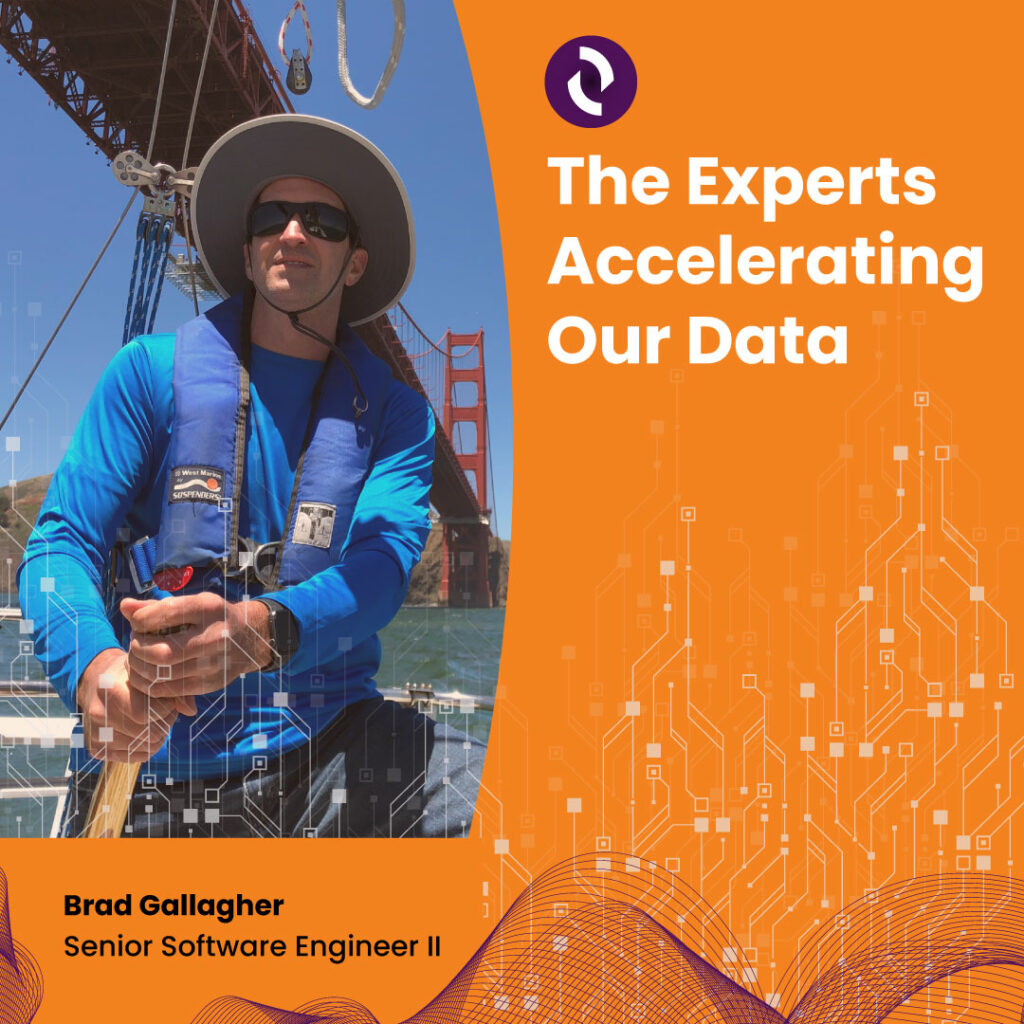Spotlighting Our Engineering Team: The Experts Accelerating Our Data (Brad Gallagher)
Author:
Verana Health
We’re shining a spotlight on a few of our Engineering team members at Verana Health. This team of more than 40 bright minds is responsible for the development of sophisticated pipelines and platforms that allow us to ingest and curate a high volume of de-identified healthcare data that can help accelerate research and improve patients’ lives.
In this blog, we spotlight Brad Gallagher.
Q: How would you explain your role?
A: As senior software engineer, I am responsible for all revenue-generating applications within the Verana Health product lines. My job is to take our Product team’s visions and translate them into profitable applications by way of planning resources, technical designs, system designs, and cross-team collaborations.
Q: What attracted you to the field of Engineering?
A: I’ve always loved learning and building things. I’m also exceptionally lazy. When I realized I could combine those traits in order to make machines, robots, and software do my bidding for me, I was sold on the field of Engineering.
Q: What attracted you to Verana Health?
A: I spent nearly all of my career in healthcare, but had a half-decade stint in bioengineering, during which time I also co-founded and sold a company. However, I missed working in healthcare. I happened to get in touch with the former director of Engineering at Verana Health and was hired to help build several software engineering teams and formalize engineering best practices. Each day has brought its own exciting challenge and reward, so I remain as attracted to working at Verana Health as I did on day one.
Q: What inspires you to do this work?
A: I’ve worked professionally with robots, computer vision and high performance software, and very much enjoy thinking about ways to convert technology and engineering into force multipliers. It is not uncommon to use engineering in order to realize business improvements measured in orders of magnitude. That never gets old for me.
Q: What is the most rewarding part of your job?
I literally wake up and work on solutions that save lives and improve the quality of life for millions of patients.
A: I literally wake up and work on solutions that save lives and improve the quality of life for millions of patients. It’s easy to get lost in the grind of daily challenges, but the ability to stop, take a step back, and realize that a record in a database isn’t just numerical data, it’s an actual patient – someone whose life is measurably improved by the problems we’re solving – is a big reason that I get up and come to work each day. I find that very rewarding, even on the most challenging of days.
Q: What advancements do you see in your field in the next 5 years?
A: People say we’re in the Information Age, but I like to think we’re in the Data Age. All information is data, but not all data is information. We are overwhelmed by data and we continue to collect and amass data, however, we’ve barely begun to scratch the surface on our ability to extract information from that data. What good does it do to have tens of thousands of results for a search, if we only need one result and that singular result is not returned? Verana Health excels at converting data into actionable information which saves lives and improves treatments. I believe we will see advancements, both at Verna Health and in the industry, that move away from collecting data and towards making sense of the data.
I believe we will see drastic lowering of barriers to entry around information retrieval. We are already beginning to see this with large language models (LLMs). The ability to retrieve information conversationally will drastically alter how user interfaces are built in the near future. Rather than design interfaces around how we feel users should interact with applications and how information should be presented, user interfaces will become much more free-form.
I also believe that LLMs, possibly combined with artificial general intelligence, will become better at “comprehending” numerical data. I visualize something akin to the introduction of graph databases, which helped spur tooling based on inferring relationships such as fraud detection. This comprehension of numerical data will help drive delivery of information that users may not have thought to ask for, yet will be meaningful. I feel as though the process of interfacing with data, in order to extract meaningful information, will become much more collaborative between the users and the applications.
When he’s not creating life-saving solutions, Brad enjoys sailing (Pictured sailing under San Francisco’s Golden Gate Bridge).


Let's Accelerate Research Together
To learn more about Verana Health, please fill out the information below and our team will follow up with you as soon as possible.

